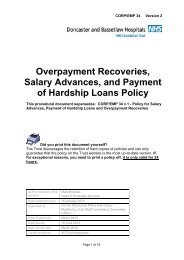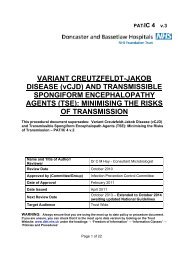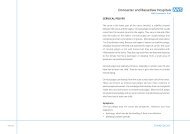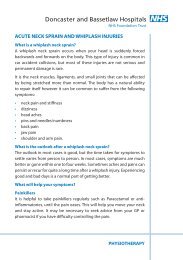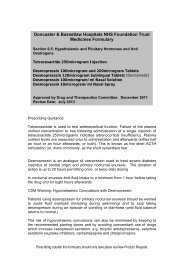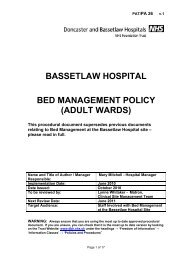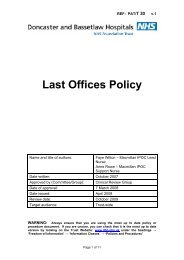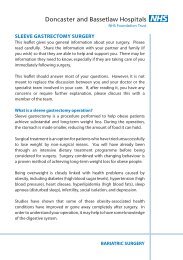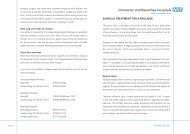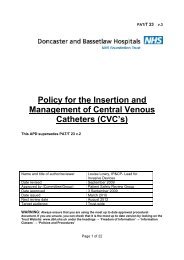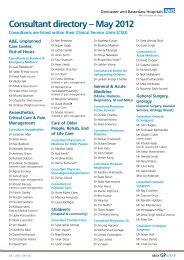evidence based mouth care policy - Doncaster and Bassetlaw ...
evidence based mouth care policy - Doncaster and Bassetlaw ...
evidence based mouth care policy - Doncaster and Bassetlaw ...
Create successful ePaper yourself
Turn your PDF publications into a flip-book with our unique Google optimized e-Paper software.
Page 16 of 21<br />
REF: PAT/PA 17 v.1<br />
• A reduction in the amount of intracellular fluid causes an increased risk of<br />
dehydration leading to thickened saliva, or dry <strong>mouth</strong>.<br />
• Cognitive motivation for learning lessens; attention span may be reduced; both of<br />
which may reduce patients’ ability to <strong>care</strong> effectively for their <strong>mouth</strong> <strong>and</strong> teeth.<br />
Elipoulous (1997) suggests “an underst<strong>and</strong>ing of common ageing changes is essential to ensure<br />
competent gerontological nursing practices”<br />
In addition to these physiological processes, a number of abnormal conditions, which may present<br />
at any time but are common in the elderly patient, may occur, <strong>and</strong> these should be considered in<br />
combination with the normal changes of ageing. The following list is not comprehensive but<br />
provides some examples.<br />
Other conditions:<br />
• Cerebrovascular accident: depending on the area of the brain affected, may affect<br />
swallowing, speech, general functional ability; cognitive ability, all of which, as already<br />
discussed, have a bearing on the condition of the oral cavity.<br />
• Dementia: may cause reduced functional ability; patients may also experience a reduced<br />
appetite, <strong>and</strong> are at risk of becoming dehydrated.<br />
• Parkinson’s disease: Reduced function <strong>and</strong> some associated dementia may occur.<br />
• Depression: can cause loss of appetite, reduced motivation to self <strong>care</strong> <strong>and</strong> to take oral<br />
fluids.<br />
• Drug therapy: as a response to abnormal conditions. Xerostomia is a side effect of a<br />
number of drugs, including anxiolytics, antidepressants, antipsychotics, (particularly<br />
anticholinergic drugs), diuretics (due to fluid/electrolyte intolerance). Antibiotics to treat<br />
infection may results in oral thrush. See Drugs <strong>and</strong> Treatments table, page 5.



